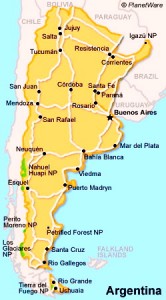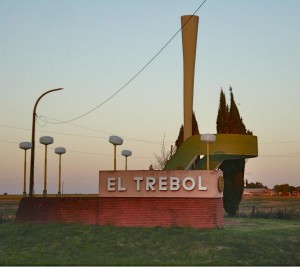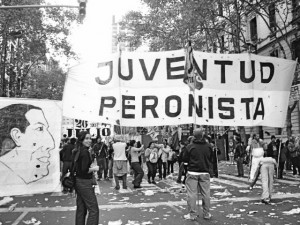“All the children of young Argentines in the 1970s were going to have to solve our parents’ pasts, like detectives, and what we would find out was going to seem like a mystery novel we wished we’d never bought. But I also realized…that [if I told] my father’s story as a mystery…[it] would betray his intentions and his struggles…[and] merely confirm the existence of a genre…All of his efforts [had challenged] those very social conventions and their pale reflection in literature.”
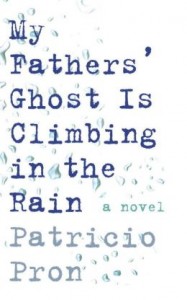 In this affecting and unusual metafictional novel, Patricio Pron describes his sudden return from Germany to Argentina in 2008 for the first time in eight years. Pron had left his home in El Trebol, about two hundred miles northwest of Buenos Aires, while still in his twenties, to pursue a literary career. He had not believed that a writer from a poor country and a poor neighborhood could become part of the imaginary republic of letters to which he aspired unless he moved to New York, London, or Berlin. Now his father is ill, and though the family has not been close, he immediately decides to return home. What follows is a dramatic tale of fathers and sons, an examination of time and memory, a study of people who believe that a life without principles is not worth living, and a memory of good people who have been so traumatized by events from another time that they have little common ground for communication with other generations.
In this affecting and unusual metafictional novel, Patricio Pron describes his sudden return from Germany to Argentina in 2008 for the first time in eight years. Pron had left his home in El Trebol, about two hundred miles northwest of Buenos Aires, while still in his twenties, to pursue a literary career. He had not believed that a writer from a poor country and a poor neighborhood could become part of the imaginary republic of letters to which he aspired unless he moved to New York, London, or Berlin. Now his father is ill, and though the family has not been close, he immediately decides to return home. What follows is a dramatic tale of fathers and sons, an examination of time and memory, a study of people who believe that a life without principles is not worth living, and a memory of good people who have been so traumatized by events from another time that they have little common ground for communication with other generations.
The speaker himself grew up during the 1970s, during which the military overthrew Juan Peron and installed a military dictatorship, but as a child, he was naïve to the horrors of their rule as they “cleansed” the country of all democratic and socialist elements. His parents, however, were both journalists and members of a Peronist group opposed to the military, and in their efforts to protect their children, they existed on a different plane, unable to communicate fully with the children for fear of endangering them, while, at the same time, watching as some of their friends were “disappeared” or killed. The speaker has always blamed the family’s lack of communication, in part, on his father’s atrocious memory, which he regarded as a “trick my father had come up with, his way of avoiding things that for some reason were too much for him, among which were me and my brother and sister.” Now he also blames his father’s political past “that I thought I knew nothing about and that maybe I didn’t want to know about.” In one poignant scene, the speaker remembers a photograph of his father and himself in the mountains, and “I am looking at him, and in my gaze there is a very specific plea: that he notice me…because I’m just a boy, about to collapse at any moment…My father doesn’t look at me.”
Dividing the novel into four parts, the author describes his childhood memories in Part I (at least those that he remembers after eight years of heavy drug use in Europe); the disappearance and murder, just two months before his arrival, of a man who worked at a local club and knew his father, in Part II; his decision to examine his father’s personal files and to follow up on his father’s investigation into this man’s death and the long history which preceded it, in Part III; and, finally, his discovery of who his father really is and how he is representative of other fathers whose actions and spirit should not be forgotten: “Their ghost – not the right or wrong decisions my parents and their comrades had made but their spirit itself – was going to keep climbing in the rain until it took the heavens by storm,” and he intends to be the one who records it for posterity.
The novel which results from all the searches and discoveries by the speaker is moving and even tender. Pron’s honesty about his own history and his own problems suggests that despite a childhood spent without the loving guidance of the father he yearned for that he would ultimately make his own courageous choices and would connect with his family in new ways. Combining his relentless honesty with images which convey feelings in addition to pictures, he draws in the reader on several levels at once: In the hospital “My father was lying beneath a tangle of cords like a fly in a spiderweb. His hand was cold and my face was hot, but I noticed that only when I brought my hand to my face to wipe it.” He makes the reader see the little town of El Trebol, between Rosario (referred to here as “*osario”) and Cordoba, and feel the friendships which are possible between people like his parents and their comrades in their Peronist resistance group. His efforts to understand his father through the files he finds in his father’s study allow him to share his father’s thinking directly, even as his father blames himself for the loss of some of his comrades as they consistently challenged the military.
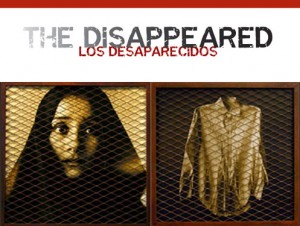 Though the novel takes place during a period of horrific abuses by a powerful and aggressive military, Pron’s setting in El Trebol, where the streets “were like the streets in the small American Midwestern towns from the 1950s movies” makes the setting feel familiar and the abuses more horrific because of that. His father’s careful research into the fate of Alicia Burdisso in the 1970s and the discovery that she is the sister of the murder victim from 2008 allow the speaker to connect the present with his father’s past in new ways. His father, a journalist, always intended to write a book, just as the speaker is doing throughout this record of his return home, and as he works his way through his father’s files, he wonders if his father, is deliberately using his files to create “yet another puzzle in which the pieces were movable and had to be assembled on a larger tabletop that was memory and in fact the world.”
Though the novel takes place during a period of horrific abuses by a powerful and aggressive military, Pron’s setting in El Trebol, where the streets “were like the streets in the small American Midwestern towns from the 1950s movies” makes the setting feel familiar and the abuses more horrific because of that. His father’s careful research into the fate of Alicia Burdisso in the 1970s and the discovery that she is the sister of the murder victim from 2008 allow the speaker to connect the present with his father’s past in new ways. His father, a journalist, always intended to write a book, just as the speaker is doing throughout this record of his return home, and as he works his way through his father’s files, he wonders if his father, is deliberately using his files to create “yet another puzzle in which the pieces were movable and had to be assembled on a larger tabletop that was memory and in fact the world.”
Always aware that telling the story of his father’s past risks confusing his father’s individual experience with the collective past of the Resistance organization to which he belonged, the author carefully shows the turmoil which occurs after the death of Peron. His parents’ organization, unlike most of the other Resistance groups, disbanded, instead of combining with some of the many other groups with different goals that continued to exist, and it is this which may have allowed the members, like his father, to fade into the community without being pursued further. Pron recognizes, however, that “Something had happened to my parents and to me and to my siblings that prevented me from ever knowing what a home was or even what a family was, though everything seemed to indicate I had both.” And he recognizes, too, that his father “would have liked not to be one of the few who survived [the military purges], because a survivor is the loneliest person in the world.”
Photos, in order: The author’s photo is from http://blog.eternacadencia.com.ar
The map of Argentina is found on http://www.planetware.com Click on the map to enlarge it.
El Trebol, about 200 miles northwest of Buenos Aires, is home to the Pron family, located between Rosario and Cordoba. This photo appears on http://www.panoramio.com/ and was taken by Defensores.
A poster of the Disappeared is from http://www.episcopalcafe.com/
A Peronist group demonstrates in the 1970s. This group is similar to the one to which the Pron parents belonged, though the Prons’ group disbanded after the death of Peron. http://www.taringa.net/

